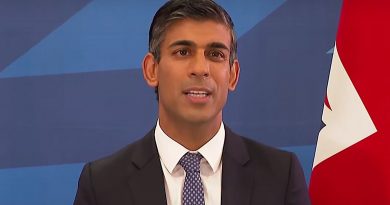Supreme Court’s conservatives question effort to unwind voting laws that critics say discriminate
WASHINGTON – The Supreme Court’s conservative justices voiced skepticism Tuesday about a Democratic effort to roll back voting restrictions in Arizona in a case with nationwide implications for how states balance concerns about ballot security and discrimination.
Two Arizona policies are at issue: A 2016 law prohibiting third parties from collecting mail ballots from voters, a practice opponents call “ballot harvesting,” and a policy of not counting ballots submitted in the wrong precinct.
But the case, which comes months after some of the same issues were raised in the November presidential election, will have a wide impact if the high court sets a new standard under which laws are overturned for discriminating against minority voters. Voting rights groups are concerned the new 6-3 conservative majority on the court may undermine a central anti-discrimination provision of the 1965 Voting Rights Act.
At the heart of the at-times feisty debate Tuesday was what limits should be set when deciding whether an election law is discriminatory. Could a group of voters, for instance, challenge a polling location placed a few miles further away from a Hispanic neighborhood? What if a state moved back its poll close time by an hour?
“What concerns me is that your position is going to make every voting rule vulnerable to attack,” Associate Justice Samuel Alito told a Democratic National Committee attorney. “People who are poor and less well educated on balance probably will find it more difficult to comply with just about every voting rule than do people who are more affluent.”
Though the dispute originated long before the 2020 election, it deals with some of the same issues raised last year as states changed laws to allow more voters to cast their ballots through the mail during the pandemic. Former President Donald Trump, meanwhile, made repeated baseless claims that widespread fraud cost him the election.
The California-based U.S. Circuit Court of Appeals for the 9th Circuit found that Arizona’s laws had a disproportionate impact on Native American, Latino and Black voters and that they were enacted within a broader context of voter discrimination. The appeals court noted that only 18% of Native Americans in Arizona have access to home postal service, for instance, which means ballot collection might help them more than others.
Arizona says the potential for fraud justification for banning third-party ballot collection. The federal district court judge who sided with the state in upholding the prohibition noted there was no evidence of fraud in the state, but there have been limited cases of fraud tied to the practice elsewhere, including New Jersey.
“Does Arizona have to wait for fraud to occur in Arizona using a practice before it can outlaw it?” Associate Justice Neil Gorsuch pressed Jessica Amunson, the lawyer representing Arizona Secretary of State Katie Hobbs. “How many states does it have to happen in?”
Chief Justice John Roberts raised similar questions, pointing to a bipartisan report in 2005 in which former President Jimmy Carter, a Democrat, and former Secretary of State James Baker, a Republican, recommended prohibiting third-party ballot collection.
Amunson responded that Arizona has separate laws prohibiting voter fraud. In this case, she said, the law isn’t about stopping fraud but rather limiting ballot access for racial and ethnicminorities.
“What this law does is it criminalizes neighbors helping neighbors deliver ballots, with up to two years in jail,” she said.
The Supreme Court on Nov. 5 2020. (Photo: J. Scott Applewhite, AP)
Liberal Associate Justices Elena Kagan and Sonia Sotomayor pounded away at Republican attorneys with a series of hypotheticals intended to show that the standard they proposed could excuse almost any law. Could the state put polling places inside country clubs that once barred Black members? What if a state closed polls at 3 p.m., restricting access to those who work 9-to-5 and are unable to take time during the day to vote?
“Nine to five is okay. Ten to three is not. Is that the idea?” Kagan pressed Michael Carvin, a lawyer for the Republican National Committee.
Carvin responded that such changes would potentially raise more concern the further they stray from the “normal” hours that have been used in elections for decades.
Twenty-six states allow voters to designate a third party to turn in their ballots, though 12 of those states limit how many ballots a person may collect, according to the National Conference of State Legislatures. Ten states allow family members or caregivers to return ballots but not third-party groups.
Line for early voting at the Bell Auditorium in Augusta, Ga., on Oct. 12, 2020. (Photo: Michael Holahan, AP)
In one notable exchange, Associate Justice Amy Coney Barrett, who Trump nominated to the court last year, seemed to express skepticism about the Republican position that the impact of a single restriction – say, prohibiting ballot collection – would be mitigated by an election system that, overall, offers many opportunities for all voters to cast a ballot.
“If it takes one opportunity away, I guess I still don’t understand why that isn’t reducing the ability of those voters to vote,” she said.
Voting rights advocates are closely eying a bevy of legislation percolating in state legislatures across the country that would restrict voting. Alex Gulotta, Arizona director of All Voting is Local, said that courts shouldn’t look at any one rule in isolation but instead should look at an entire system he says disadvantages minority voters.
“When you add up the cumulative impact of each one of these things it creates a mountain of barriers for people who have the least ability to overcome those barriers,” Gulotta said. “We’re basically creating a voting system that favors the privileged.”
Source: Read Full Article



